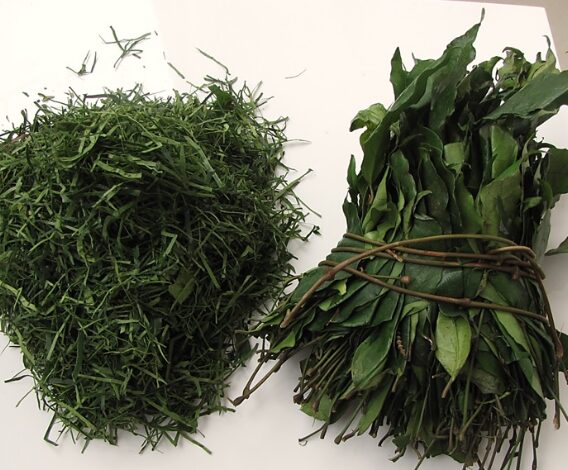Discover the top Non-Timber Forest Products (NTFPs) in Cameroon that are in high demand online. Learn how these natural products are used, their market demand, and opportunities for local and international buyers.
Introduction
Cameroon is home to a diverse range of Non-Timber Forest Products (NTFPs) that are highly sought after in both local and international markets. These products, valued for their nutritional, medicinal, and cultural significance, present significant opportunities for local entrepreneurs and international buyers. In this blog post, we will explore the top NTFPs from Cameroon that are in high demand online, their uses, and the potential they hold in the global marketplace.
1. Eru (Gnetum africanum and Gnetum buchholzianum)
Demand:
Eru, also known as Afang in Nigeria, is one of the most popular NTFPs in the Cameroonian and Nigerian diaspora. This leafy vegetable is commonly sold online through various platforms catering to African communities abroad.
Uses:
Eru leaves are used to prepare traditional dishes and are prized for their high nutritional content. It is a delicacy in many Central and West African cuisines, often used in soups and stews.
2. Bush Mango (Irvingia gabonensis and Irvingia wombolu)
Demand:
Bush mango seeds, also known as “ogbono” or “dika nuts,” are in high demand, especially in the West African and African diaspora markets. They are frequently sold online for their culinary and medicinal uses.
Uses:
The seeds are commonly used to thicken soups and sauces in West African cuisine. Additionally, they are marketed as health supplements for weight loss and cholesterol management.
3. Bitter Kola (Garcinia kola)
Demand:
Bitter kola is highly sought after for its medicinal properties and is widely sold online as a natural health supplement.
Uses:
Traditionally used to treat ailments like coughs, liver disorders, and digestive issues, bitter kola is also valued for its stimulant properties, similar to caffeine.
4. African Cherry (Prunus africana)
Demand:
The bark of the African cherry tree is in high demand, particularly in the pharmaceutical industry, for treating prostate conditions. It is exported and sold online mainly in the form of supplements.
Uses:
The bark extract is used to treat benign prostatic hyperplasia (BPH) and is a key ingredient in various herbal medicines.
5. Honey
Demand:
Cameroonian honey, especially wild-harvested honey, is prized for its purity and natural qualities. It is marketed online to health-conscious consumers seeking organic and raw honey.
Uses:
Honey is used as a natural sweetener, in traditional medicine, and as a skincare product due to its antibacterial properties.
6. Shea Butter (Vitellaria paradoxa)
Demand:
Shea butter is a staple in the cosmetic and skincare industry. It is a popular product online, particularly among consumers looking for natural and organic skincare solutions.
Uses:
Shea butter is used in lotions, creams, soaps, and hair care products, known for its moisturizing and healing properties.
7. Rattan and Bamboo
Demand:
Rattan and bamboo are in demand for their use in making furniture, handicrafts, and construction materials. They are increasingly sold online as eco-friendly and sustainable products.
Uses:
These materials are used in producing furniture, baskets, and other artisanal goods, valued for their durability and sustainability.
8. Baobab (Adansonia digitata)
Demand:
Baobab powder and oil are highly demanded online, particularly in the health food and beauty markets.
Uses:
Baobab powder is rich in vitamin C and antioxidants, making it a popular supplement in smoothies and health drinks. Baobab oil is used in skincare products for its nourishing properties.
9. Njansang (Ricinodendron heudelotii)
Demand:
Njansang seeds are popular in African markets online, especially for their use in traditional cooking.
Uses:
Njansang is used as a spice and thickening agent in soups and stews, adding a rich flavor to dishes.
Conclusion
Cameroon’s rich array of Non-Timber Forest Products (NTFPs) offers immense opportunities for both local entrepreneurs and international buyers. These products not only contribute significantly to the economy but also play a vital role in preserving cultural heritage and promoting health. The growing global demand for these products presents a unique opportunity for Cameroonian communities to access international markets. Sustainable harvesting and value-added processing are key strategies to maximize the potential of these NTFPs in the online marketplace.

